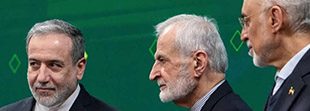Ethical and Political Implications – While Moghadam is hailed as a hero within Iran, his legacy is viewed more critically outside the country. Iran’s missile program has been a focal point of international concern, particularly among Western nations and Israel. Critics argue that the development of long-range ballistic missiles, coupled with Iran’s nuclear ambitions, poses a destabilizing threat to regional and global security.
Furthermore, Iranian missile technology has been exported or transferred to allied non-state actors in conflict zones, raising ethical and legal questions. Weapons allegedly linked to Iranian technology have been used in conflicts in Yemen, Syria, and Lebanon, sometimes targeting civilian infrastructure. These developments have led to sanctions, diplomatic isolation, and a series of confrontations between Iran and other countries.
Nonetheless, from the Iranian perspective, these same developments are seen as a necessary response to decades of sanctions, military threats, and international isolation. Moghadam’s work is perceived as having provided Iran with a form of strategic autonomy, enabling it to defend its interests in an increasingly hostile geopolitical environment.
Personal Characteristics and Leadership Style
Colleagues and subordinates who worked with Hassan Tehrani Moghadam often describe him as intensely focused, deeply religious, and highly intelligent. He was known for his work ethic, often putting in long hours at research and testing facilities. His commitment to the cause of Iranian self-reliance was matched by his technical competence and innovative thinking.

